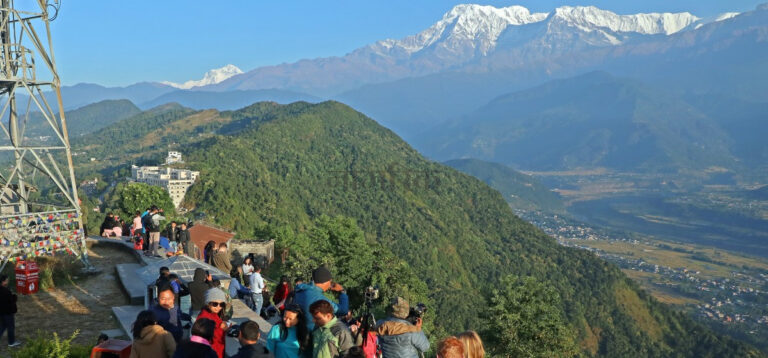Taplejung, July 10: Tourism entrepreneurs have suggested that the government’s declaration of the Tourism Decade in 2023 be postponed by two years to 2025. The tourism entrepreneurs made the suggestion as the government has not been able to make headway in the work since declaring 2023-2033 as the Tourism Decade.
On 24 July 2022, the then Minister of Culture, Tourism and Civil Aviation Jeevan Ram Shrestha proposed the concept of a Decade of Tourism, citing the imperative to revive the tourism sector with a long-term vision. Based on the same concept, the then Finance Minister Prakash Sharan Mahato announced the “Decade of Tourism” during the budget presentation for 2022/23.
Stakeholders suggested that the government should launch it in 2025 instead of 2023 as it has failed to start preparatory work related to the tourism decade even after announcing it. Hoteliers Association of Nepal (HAN) General Secretary Sajjan Shakya said the government had failed as the announcement of the tourism decade was made without preparation. “The concept of ‘tourism decade’ has been used only as a name without implementation. There are no special programmes for tourists entering the country and no discounts on tourist facilities have been announced,” Shakya said.
“After announcing the tourism decade, we must go ahead with necessary preparations,” Shakya said. The road from Kathmandu to Pokhara normally takes 5-6 hours, but now it takes 12 hours to travel. Similarly, the condition of the road from Pokhara to Bhairahawa is serious. He said the condition of the international airport is also dire. No action plan has been made public. Shakya said it is a failure that the work plan for the project aimed at reviving tourism has not been made public even after two years. Hence, full-scale preparations need to start in 2025.
Shrestha said the 10-year tourism plan was not just the province of a ministry but an entire government purview.
In 2023, the first year of the tourism decade, the agenda included preparing the construction of a work plan and planning. Programs such as thematic campaigns on the promotion of cultural heritage in Bagmati district in 2024, Gandaki district in 2025, national-level campaign in 2026, promotion of Buddhist tourism in Lumbini district in 2027, promotion of Madhesh tourism in 2028, campaign in Sudurpaschim district in 2029, promotion campaigns in Kosi district in 2030, promotion campaigns in Karnali district in 2031, and national campaign in 2032 were decided.
Plans to create a programme focusing on one district each year do not seem realistic. “It is not good for the government to set plans and programmes each year giving priority to a particular district,” Shakya said. “Does that mean that tourists will come only to Kathmandu in a particular year? Or only to Lumbini in a particular year? If so, how much promotion is being given to scenic and other attractions in those districts and where? Is this enough? Can these activities be combined under the current set-up?”
All these activities would not be possible without the joint efforts of the government, the private sector and local people. Shakya said the ‘Tourism Decade’ should be driven by a focus on collective ownership.
Recently, the Ministry of Culture, Tourism and Civil Aviation of Nepal, in coordination with the Nepal Tourism Board (NTB), held discussions with the tourism industry including Nepal Hotels Association (HAN), Nepal Trekking Association (TAN), Nepal Association of Travel Agents (NATTA), Pacific Asia Travel Association (PATA) and other concerned authorities.
Stakeholders said that although the Tourism Decade is a good programme aimed at reviving the tourism sector that came to a halt due to the COVID-19 pandemic, the government has failed to implement it effectively.
Meanwhile, the government formally discussed the Tourism Decade for the first time with stakeholders, who said the government was paying little attention to the Tourism Decade action plan.
NTB director-general Mani Raj Lamichhane acknowledged that the government could not extend the 10-year tourism plan as planned, saying recent discussions with tourism stakeholders had indicated the plan should run from 2025 to 2035.
“Tourism operators suggested that the plan should be set between 2025 and 2035. We took the suggestion positively,” Lamichenne said. He said government instability was hindering the implementation of the action plan.
“We have discussed this many times within the ministry, but due to various reasons it has not yet been put into action. Now, after discussions with the ministry, we are holding formal talks with relevant parties. The ministry is also interested,” he said.

